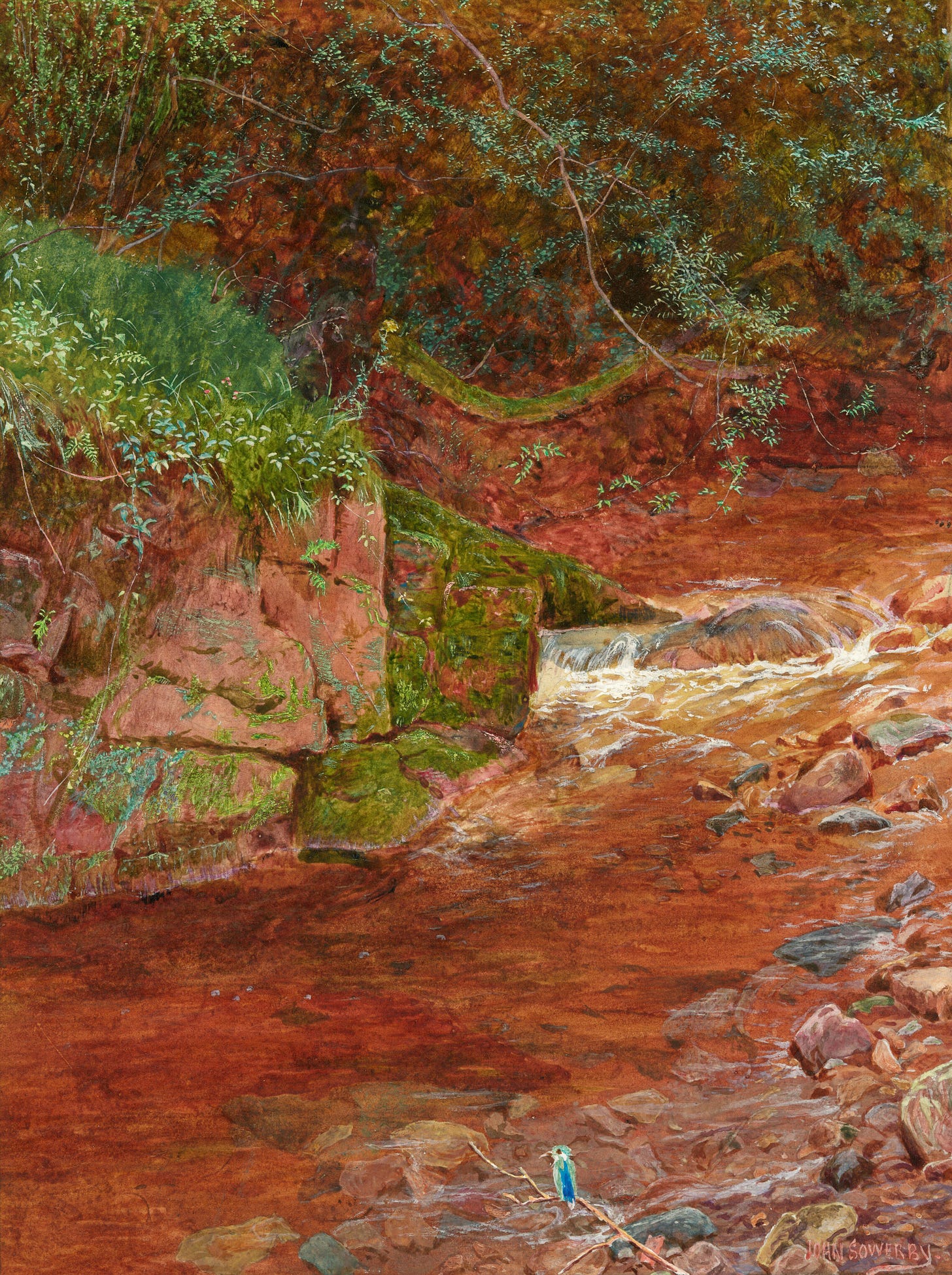
The fume and shock and uproar
of the internal combustion of America
recede, the last vacationers gone
back to the life that drives away from home.
Bottles and wrapper of expensive
cheap feasts ride the quieted current
toward the Gulf of Mexico.
And now the breeze comes down
from the hill, the kingfisher returns
to the dead limb of the sycamore,
the swallows feed in the air
over the water.
A muskrat draws his V
under the lowhanging willows.
In clear shallows near the rocks
tiny fish flicker and soar. A dove
sweetens the distance with his call.
Out of the frenzy of an August Sunday
the Sabbath comes. The valley glows.
A raincrow flies across the river
into the shadowy leaves. The dark falls.
– Wendell Berry, IV, 1985
On a visit to my parents Thursday, I saw a flock of campers bustling down the freeway, ATVs in tow. It’s Fourth of July weekend, and Americans are on the move.
Vacationing feels like an escape. All of us, finally, get to relax. No household or outdoor chores to fret about; no distractions to worry us. We are free to just be. I crave vacation for this very reason.
But if Wendell Berry is right, escapism should not be our sole or primary means of sabbath rest. We have a task in front of us—an especially difficult task, perhaps, in a world of endless screens. We must make our homes sabbath spaces. If we can do that, then we will no longer have to escape in order to be still.
On a visit to the Berry home in Kentucky last year, Tanya shared her perspective on this with me. “The idea of a vacation is ridiculous if your home is a place of life,” she said. Our need to flee, our rest-lessness, speaks to an inner longing for rest and peace. Because our homes are not places of life, we constantly seek out “getaways.”
Keep reading with a 7-day free trial
Subscribe to Granola to keep reading this post and get 7 days of free access to the full post archives.


